You better watch out, you better not cry
You better not pout, I'm telling you why
Santa Claus is comin' to town
Santa Claus is comin' to town
Santa Claus is comin', comin' to town
He's making a list and checking it twice
Gonna find out who's naughty and nice
Santa Claus is comin' to town
Santa Claus is comin' to town
Santa Claus is comin' , comin' to town
I lost d.g. July 11th of this Year: The Year of The Dragon, 2012.
He sees you when you're sleeping
He knows when you're awake
[Translation: A Wake; https://en.wikipedia.org/wiki/Wake_(ceremony)]
He knows if you've been bad or good
So be good for goodness sake
You better watch out, you better not cry
You better not pout, I'm telling you why
Santa Claus is comin' to town
Santa Claus is comin' to town
Santa Claus is comin', comin' to town
I lost my grandfather, Clyde Ora Ross June 11th of this Year: The Year of The Rabbit, 1999.
He sees you when you're sleeping
He knows when you're awake
[Translation: A Wake; https://en.wikipedia.org/wiki/Wake_(ceremony)]
He knows if you've been bad or good
So be good for goodness sake
You better watch out, you better not cry
You better not pout, I'm telling you why
Santa Claus is comin' to town
Santa Claus is comin' to town
Santa Claus is comin', comin' to town
We're going to have a white Christmas!!
The Abyss, the Bottomless Pit, Tartarus, Hades, Torment, Hell ...
allpowertothelamb.com/.../the-abyss-the-bottomless-pit-tartarus-hades-torment-hell-ge...
Nov 13, 2011 - When one reads the Bible, he encounters the terms Abyss or Bottomless Pit, Tartarus, Hades, Hell, Gehenna, and the Lake of Fire. Just exactly what ... It is a place where God imprisoned “the angels that sinned” (2 Pet 2:4) that Enoch describes being shut up in “the valleys of the earth” (1 En 10:12). The KJV ...
From Paradise to Perdition World of Fire and Ice: Enoch's vision of heaven. - From Paradise to ...
https://paradiseandperdition.weebly.com/.../a-world-of-fire-and-ice-heaven-according...
Oct 8, 2015 - But over 2000 years ago, an ancient Jewish writing known as The Book of the Watchers, described a remarkable 'otherworldly' journey by the legendary biblical hero Enoch, to a place where truly no man (or woman) had ever "gone before" - to heaven, the dwelling place of God. According to the Hebrew ...
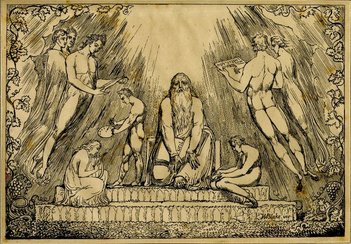 Enoch. Lithograph by William Blake.
Enoch. Lithograph by William Blake.
The introduction to the 1960s American TV series Star Trek announced every week that captain Kirk and his crew were journeying to places "where no man had gone before". Rather disappointingly (to me as a young boy) the Enterprise usually found itself locked in battle with all too familiar aliens or visiting far-flung human outposts. But over 2000 years ago, an ancient Jewish writing known as The Book of the Watchers, described a remarkable 'otherworldly' journey by the legendary biblical hero Enoch, to a place where truly no man (or woman) had ever "gone before" - to heaven, the dwelling place of God. According to the Hebrew Bible, heaven, the home of God, is not normally accessible to human beings. But Enoch was an exception. Ansuggestive verse in the book of Genesis stated that Enoch, after three hundred and sixty five years of life, had been 'taken' by God. Assuming that Enoch, instead of dying, had been 'taken up' into heaven by God, the writer of The Book of the Watchers describes Enoch's ascension into heaven. In this, perhaps the earliest written account of a journey into heaven, heaven is described as a terrifying place of extremes, of lightening and hail stones, of fire and ice, in other words, a place totally inhospitable to human life and totally alien to human experience. This is God's home, not the home of human beings.
"Strangely (we might think) that house in heaven inspired dread rather than joy. There is no "delight of life" there. This is not a warm and welcoming vision, and there is nothing here of the self indulgent, wish-fulfillment that defines so much of modern day speculation on heaven! Like all prophets before him who see or encounter the divine, Enoch falls on his face. It's strangeness and 'otherness' overwhelm him This is an acknowledgment that no human eyes should ever behold this place, the divine habitation. The home of God was never intended for human eyes."
I have already argued in previous posts (possibly to the point of tedium) that according to the Hebrew bible heaven is the home of God, just as the sea is the home of sea creatures and the earth is the home of human beings. Heaven is where God lives just as the earth is where people live and there is no suggestion in the Hebrew Bible that human beings belong in heaven, either now or in the future. The future hope of the Hebrew Bible is the promise of the creation, by God, of new heavens and a new earth freed from the corruption and pain caused by sin. Life in that future, recreated earth is full, bodily life for those who are resurrected from the dust of the earth. The Christian perspective is that Jesus is the first of the resurrected people of God, the one whose resurrection signals the achievement of that hope. His resurrection is the sign that the age of new creation has arrived, that, as Paul put it, "the old is gone the new is come". (2 Corinthians 5.17)
The One That Got Away
Everybody dies someday. As the famous saying puts it, there are only two certainties in life, death and taxes. Or, as the famous text in Genesis puts it, as God tells Adam, "from dust you came and to dust you shall return" (Genesis 3.19). Adam, Eve and all their descendants are destined to return to dust. Human beings are mortal. The way to the garden (paradise) with its Tree of Life is barred by a sword-wielding angel (Genesis 3.24). And according to the account of the lives of the first descendants of Adam and Eve, just as promised, everybody dies . . . . . . except one. As with all generalisations there is an exception, and the exception in this context is Enoch, the one man who doesn't return to dust, who doesn't die. One brief, enigmatic passage in Genesis mentions his unusual fate, a passage that reflects the long and rich tradition of speculation on the fate of the ancient patriarch.
When Enoch had lived for sixty-five years, he became the father of Methuselah. Enoch walked with God after the birth of Methuselah for three hundred years, and had other sons and daughters. Thus all the days of Enoch were three hundred and sixty-five years. Enoch walked with God; then he was no more, because God took him Genesis 5.21-24 NRSV
"Enoch walked with God: then he was no more because God took him." The implication of the verse is that Enoch didn't die. Instead God "took him". The phrase 'God took him' is obscure and it isn't at all obvious what the author meant. But since God lives in heaven the implication seems to be that God took Enoch to be with him in heaven. That was certainly the way many Jews read the verse and there was clearly a tradition of speculation on what Enoch did in heaven, and why God took him. This speculation found its literary starting point in a document known as the Book of the Watchers, the story of the fallen angels (or Watchers) who left heaven and came down to the earth and defiled it. According to this story, they defiled it in two ways; through their sexual relationships with women and their unauthorised revealing of the secrets of heaven to their 'wives'. This story is an elaboration on the brief reference to the 'sons of God' and their relations with human women in Genesis 6.1-4. In this later, elaborated tradition, the women in question give birth to half-breed creatures known as the Giants, who cause major trouble for humanity because of the violence they bring to the earth. The Flood becomes God's answer to the mess caused by the fallen Watchers and the chaos unleashed by the Giants.
According to The Book of the Watchers Enoch is given the job of going to the fallen angels in order to tell them God's judgement, namely that they will never be allowed to return to heaven and that their terrible offspring (the Giants) will be destroyed. Understandably this causes some disquiet among the fallen Watchers and they ask Enoch to take back to God a request for mercy. Enoch thus acts as an intermediary between God and the fallen angels. Clearly this requires Enoch to go to to heaven to give the message from the Watchers to God. Enoch's vision of his journey to heaven forms the centre-point of the book. Before this, as far as I am aware, there is no account anywhere in Jewish (or Hebrew) writings of someone going to heaven. Prophets are occasionally given glimpses intoheaven from their viewpoint on earth but they never actually ascend to heaven. There are many later Jewish and Christian texts which talk about people (usually well known biblical characters) ascending to heaven but they all postdate The Book of the Watchers. The book was probably written sometime in the 3rd or 4th century BC and therefore even predates the 'last' book of the Hebrew bible, Daniel. In time The Book of the Watchers became incorporated into the larger work known to us today as The Book of Enoch or (because there is more than one such book), First Enoch. In some Christian traditions this book forms part of their biblical canon.
Gone with the wind
Enoch's heavenly journey begins at chapter 14, verse 8, where Enoch describes it like this (most of the quoted text is my paraphrase based on the translation by George Nickelsburg and James Vanderkam).
My vision was like this. I was summoned by clouds and mists who called to me; and I was carried along by shooting stars and flashes of lightening, and I was carried upwards by winds until I was brought at last to heaven.
Enoch seems to be carried upwards to heaven by the great forces of nature: the wind, the clouds, lightening and shooting stars. When he arrives in heaven the first thing he sees is a strange and remarkable wall (or according to some interpreters, 'house')
And I made my way into heaven until I came to a wall (house?) made of hailstones; which was itself surrounded by tongues of fire. And I became very afraid.
A house of hail and lightening
No wonder he was afraid. He was going somewhere where "no man had gone before" and he was seeing the glorious and terrible vision of a structure built out of hail and fire. Either could destroy him. He knows that he is walking in dangerous territory, territory never designed for human sight of human habitation (it is after all the home of God!!).
And I went into the tongues of fire, and I came to a magnificent house made of hailstones; The walls of the house looked like great slabs of stone made of snow. So too was the floor. The ceiling of the house looked like it was made of shooting stars and lightning and I saw fiery cherubim, and above them was water, and a flaming fire encircled their walls, and the doors blazed with fire.
Rather like Ezekiel's vision it is not easy to reconstruct what Enoch is actually seeing. The overall impression however is quite clear - this (second?) "house" in heaven is spectacular. It is made of fire and ice (or snow). Only in heaven can both coexist side by side like this. The house is made of those things which express the extremities of the creation. There is nothing hotter that tongues of flame and there is nothing colder than ice. This is not a comfortable place! Heaven is a place of extremes!
|
This is also something that inspires awe and wonder. It has a spectacular beauty. We should imagine this house as unutterably radiant, a house that blazes with fiery, icy brightnesss!
Obviously such a sight is terrifying to a mere human like Enoch.
And I entered into that house— that house which was as hot as fire and as cold as snow, a house in which there was no 'delight of life'. Fear enveloped me, and I couldn't stop trembling and shaking. I fell upon my face.
Strangely (we might think) that house in heaven inspired dread rather than joy. There is no "delight of life" there. This is not a warm and welcoming vision, and there is nothing here of the self-indulgent wish-fulfillment that defines so much of modern day speculation on heaven! Like all prophets before him who see or encounter the divine, Enoch falls on his face. It's strangeness and otherness overwhelm him This is an acknowledgment that no human eyes should ever behold this place, the divine habitation. The home of God was never intended for human eyes.
|
The Second House
But that was just the first (or maybe the second, if we count the first wall) house. Beyond that lies another, even more spectacular house.
And then I saw another open door in front of it and through that door lay another house, even greater than the one I had just seen and this one was built entirely of tongues of fire. It was so completely, amazingly, spectacular and majestic that I can't begin to describe it adequately for you. Its floor was of made of fire, and its walls were made made of flashes of lightning and shooting stars, and the ceiling was a flaming fire.
The second (or third) "house" lay beyond the first one and was larger and more magnificent. I don't think we are meant to imagine that the greater house lay within the former (through some kind of Dr Who-like dimensional transformation of space), but rather that, like the Jerusalem Temple, these "houses" are like vast courts through which the seer passes, just as the Jewish worshiper would pass through the different courts of the Temple (depending on how ritually clean or qualified they were!) until they came to the holiest place of all, the holy of holies which lay at the centre of the complex (which only the most holy human being, the high priest could enter) in which the glory of God was believed to dwell.
This Wheel's on Fire!
Enoch sees that in this house there is a throne. Like all the great visions of God in the Hebrew Bible, the vision of a throne defines this as a vision of God. Daniel sees the heavenly court assembling and thrones are 'set up'. Ezekiel sees the throne-chariot of God. Enoch sees the following
And as I looked I saw a lofty throne; which had the appearance of ice, and its wheels shone like the sun, ...., and from beneath the throne issued rivers of flaming fire. And I was unable to see.
Like Daniel he sees a throne which is clearly fixed in one place but which nevertheless has wheels. The wheels in Daniel's vision are "all ablaze". According to Ezekiel, the wheels of the throne chariot "sparkle like Topaz" (NRSV). Here they "shine like the sun".
A Throne of Fire and Ice
According to Daniel "His throne was flaming with fire, and its wheels were all ablaze" (Dan 7.9). According to Ezekiel, "In the middle of the living creatures there was something that looked like burning coals of fire, like torches moving to and fro among the living creatures; the fire was bright, and lightning issued from the fire". (Ezekiel 1.13 NRSV). Here, in The Book of the Watchers, the fire issues from beneath the throne as rivers of fire. The throne itself is made of ice (or at least it looks like it is made from ice).
And upon this icy throne Enoch sees a vision of the glory of God
Upon this throne sat The Great Glory; his clothes, whiter than the pure snow, shone like the sun. so that neither angel nor human being could go into that house and look at his face. It was too splendid, too glorious. He was encircled by flaming fire and beside him too there was a great fire. None of his servants came anywhere near him. Ten thousand times ten thousand stood before him, but because every word he uttered became reality, he needed no counselors or advisers.
This part of the vision, the vision of God himself, is again similar to those of Daniel and Ezekiel. It is Ezekiel who speaks of seeing on the throne, not God but "the appearance of the likeness of the glory of God" (Ezekiel 1.28). Daniel speaks of God's clothing being 'whiter than white', and of God being attended by "ten thousand times ten thousand" (Daniel 7.9). This is the vast, innumerable heavenly council, the royal (divine) court. But here Enoch adds that the entire court is unnecessary because God needs no advice and his very words become a reality, so he doesn't need servants to do his will either. The reader is obviously left with the question what are all these counsellors/angelic beings are doing then, but the Book of watchers doesn't try to offer an answer. Nor is Enoch unnecessary. God gives him a message to deliver to the fallen watchers.
Until now I had been on my face, collapsed on the floor and trembling. But the Lord called to me and said to me, “Come here, Enoch, and listen to my words.” And one of the holy ones came to me and lifted me up so that I stood upright and he brought me up to the door of that house. I still had my face bowed down but I heard Him speaking to me and he said this “Don't be afraid, Enoch. You are a righteous man and my truthful scribe; come closer and hear what I have to say. Go and say to the watchers of heaven, those who sent you to represent them before me . . . . . . "
And there then follows the rather lengthy message God wants Enoch to give to the fallen Watchers, a message of condemnation and judgement. The actual message is not the point of the blog post - if you want to find out more about the book of Enoch and read more in R.C. Charles' (rather dated) translation this is a good place to begin.
Going "Backstage"
But Enoch is shown more than just God seated on his throne. I have mentioned before that in the Hebrew cosmology the weather was kept in heaven and that God sent the various forms of weather to the earth through heaven's 'doors' and 'windows'. So it is no surprise that while he is there, the heavenly tourist Enoch is shown everything! If you like, he gets a sneek peek "backstage", into the workings of the cosmos.
And they led me away to a dark place and to a mountain whose summit reached to heaven. And I saw the place of the bright heavenly bodies and the treasuries of the stars and of the thunders, and to the depths of the ether, where the bow of fire and the arrows and their quivers (were) and the sword of fire and all the lightnings. And they led me away to the living waters and to the fire of the west, which provides all the sunsets. And I came to the river of fire, in which fire flows down like water and discharges into the great sea of the west. I saw all the great rivers. And I arrived at the great river and the great darkness. And I went where no human walks. I saw the wintry winds of darkness and the gushing of all the waters of the abyss. I saw the mouth of all the rivers of the earth and the mouth of the abyss. 1 Enoch 17.1-5 tranls. Nickelsberg and Vanderkam
So Enoch is shown the place the stars are kept (until night-time returns), the fiery river of the West, and the place where the lightening is stored. He is also shown the place where the great abyss (the terrible waters of chaos and destruction) are kept. Then he sees the winds:
I saw the treasuries of all the winds. I saw how through them he ordered all created things. I saw the foundation of the earth and the cornerstone of the earth. I saw the four winds bearing the earth and the firmament of heaven. And I saw how the winds stretch out the height of heaven. They stand between earth and heaven; they are the pillars of heaven. I saw the winds of heaven that turn and bring to (their) setting the disk of the sun and all the stars. I saw the winds on the earth bearing the clouds. I saw the paths of the angels. I saw at the ends of the earth the firmament of heaven above. 1 Enoch 18.1-5 trans. Nickelsberg and Vanderkam
After this his tour continues and Enoch is taken to the furthest reaches of the earth and shown more incredible things (some of which we will return to later) but since the point of this blog is Enoch's vision of heaven I will keep these for another post. I urge any curious reader to consult the online resources or/and to purchase the translation by Nickelsberg and Vanderkam on which my (rather loose) paraphrase above is based.
An Impossible Place
The vision of heaven, the first of its kind, is remarkable. The heaven depicted here is an impossible place, in the sense that it could not exist on earth. It is made of fire and ice which coexist at the same time. Here, in heaven, the laws that govern the natural life of the earth are changed. Here fire and ice can co-exist. This is telling. Heaven is natural i.e. created by God, but it is not like the earth. The home of God reflects the otherness of God, it is a place made for God (and the angelic, semi-divine beings who attend him). It is not a place in which human beings can find a home. Fire and ice represent the extremes of creation. There is nothing hotter and nothing colder than fire and ice respectively. This impression of 'otherness' is conveyed partly by the fact that the structure of the houses in heaven is not static, but rather the mention of shooting stars and flashes of lightening bear witness to a place of boundless, dynamic energy. God's house doesn't really have walls or a ceiling, it has activity, startling, fearful activity. It doesn't have wallpaper or paint - it has flashes and streaks and explosions! What Enoch is trying to convey is the strangeness of heaven. So when we read or hear of modern day visions of heaven in which there are rolling hills, pleasant meadows and familiar faces we should be aware that we have moved a long way from where visions of heaven began. Personally I am with Enoch. Heaven is never going to fit in to our concept of reality. It is always going to dumbfound, amaze and terrify. Heaven is God's dwelling place. If God is amazing and different then so too is God's home!
The question that springs to mind (at least to mine) is how is it possible or Enoch to experience all this? If heaven is truly 'alien' and so unsuited for humans to experience how is it that one man manages to do it? The answer may be partly that, as the brief text in Genesis implies, Enoch had a very special relationship with God ("he walked with God") - he had a relationship of closeness to God that meant he, alone of mankind, could experience this 'otherness', since somehow, his relationship with God had fitted him to bear it. But the other, and probably more important, part of the answer is that Enoch here becomes something rather special - he becomes a high priest in the service of the heavenly Temple (i.e. in contrast to the Jerusalem one). Enoch was special, just as the high priest was special and so is permitted to see God in the real Holy of Holies (i.e. heaven) just as the high priest in the Jerusalem Temple, even though a mere mortal, was permitted to see God (although only once a year and even then through a dense cloud of incense). Behind the imagery of this vision it is important to understand the role the Temple in Jerusalem played in its imaginative framework.
The vision of these houses would have reminded the original Jewish readers of the third century BC of the great Temple in Jerusalem, the focal point of the Jewish faith. Although the vision of The Book of the Watchersis of a place wholly 'other', it is a place which resembles something with which the readers would have been very familiar. Heaven is depicted as the true Temple, on which the earthly Temple was based and of which it was intended to be a reflection. However great and resplendent the Temple in Jerusalem was (and later in the Roman era it was considered to be one of the architectural wonders of the ancient world) it was as nothing compared to the 'original' in heaven. Here of course the writer(s) and users of The Book of the Watchers are making a point. Jesus wasn't the only one who criticized the Temple. The community responsible for the Enoch literature were not happy with it either. They believed that the Jerusalem Temple was corrupted and defiled because of the failures (moral and theological) of the priests who officiated there. On the other hand, the heavenly Temple, the model for the earthly, still worked perfectly. It worked because the defilers, the fallen 'Watchers', had been thrown out of heaven and now awaited their just deserts. The implied message was clear: Until the Jerusalem Temple removed the 'defilers' (the bad priests) from its midst, it stood under God's judgment!
Enoch becomes an intermediary, acting for God taking messages to the fallen watchers. This job of intermediary between God and others was the job of the priesthood, and especially of the high priest as he offered the sacrifice in the Holy of Holies, on Yom Kippur (the Day of Atonement).
Enoch is described here as a high priest, indeed the first high priest, and finds himself officiating in the original, true, heavenly Temple. Just as the heavenly Temple was the original and prototype of the earthly Temple in Jerusalem, so Enoch is being established by the community that wrote and shared these documents as the original prototypical high priest, the one man who could truly represent God to mankind and mankind to God. In other words Enoch's ascent to heaven is not an advance party, waiting for the rest of the righteous to join him, but a 'one-off', a mark of the special relationship that held between Enoch and God. It was a unique relationship and a unique role. Enoch alone of all humanity, found himself in heaven with God and the angelic host, because God had chosen Enoch alone of all humanity to fulfill this very special role.
|
And so it is no surprise to find that Enoch doesn't see any other person there. When he walks in the cold darkness of the winter, it is a place where no human walks. When he see the "ten thousand times ten thousand", it is angelic beings (of some kind) he is seeing, not people. There is a sense throughout the vision of the ascent to heaven that this is truly extraordinary, something of a 'one-off', unique experience. In a sense we are all there, represented by Enoch, but in reality (as the community who read these books saw it) out of all mankind only he actually actually stands in the presence of God. This is then, as they say, the 'exception that proves the rule'. Heaven belongs to God, and only in the most extraordinary circumstances and in and through the life of a truly extraordinary man can that be different. As a Christian I think I understand that hope.
Several religions of the world have a concept of afterlife in heaven or hell. This comparison examines the beliefs of various religious faiths and their ideas of heaven and hell.
"The books of Matthew, Mark, and Jude tell of a place of fire, while the books of Luke and Revelation report it as an abyss. Our modern, more graphic, images". Read more on Diffen: 'Heaven vs. Hell' at: https://www.diffen.com/difference/Heaven_vs_Hell
Revelation 9:1-12King James Version (KJV)
9 And the fifth angel sounded, and I saw a star fall from heaven unto the earth: and to him was given the key of the bottomless pit.
2 And he opened the bottomless pit; and there arose a smoke out of the pit, as the smoke of a great furnace; and the sun and the air were darkened by reason of the smoke of the pit.
3 And there came out of the smoke locusts upon the earth: and unto them was given power, as the scorpions of the earth have power.
4 And it was commanded them that they should not hurt the grass of the earth, neither any green thing, neither any tree; but only those men which have not the seal of God in their foreheads.
5 And to them it was given that they should not kill them, but that they should be tormented five months: and their torment was as the torment of a scorpion, when he striketh a man.
6 And in those days shall men seek death, and shall not find it; and shall desire to die, and death shall flee from them.
7 And the shapes of the locusts were like unto horses prepared unto battle; and on their heads were as it were crowns like gold, and their faces were as the faces of men.
8 And they had hair as the hair of women, and their teeth were as the teeth of lions.
9 And they had breastplates, as it were breastplates of iron; and the sound of their wings was as the sound of chariots of many horses running to battle.
10 And they had tails like unto scorpions, and there were stings in their tails: and their power was to hurt men five months.
11 And they had a king over them, which is the angel of the bottomless pit, whose name in the Hebrew tongue is Abaddon, but in the Greek tongue hath his name Apollyon.
12 One woe is past; and, behold, there come two woes more hereafter.
King James Version (KJV)
source filed from http://christopherscottblog.com/fifth-trumpet-brings-first-terror-rev-91-12/ please feel free to read the work of Christopher L. Scott to comfort your doubt.
Day of the Dead - National Geographic Kids
https://kids.nationalgeographic.com/explore/celebrations/day-of-the-dead/
REMEMBERING RELATIVES. Day of the Dead combines the ancient Aztec custom of celebrating ancestors with All Souls' Day, a holiday that Spanish invaders brought to Mexico starting in the early 1500s. The holiday, which is celebrated mostly in Mexico on November 1 and 2, is like a family reunion—
A colorful fake skeleton is posed for Day of the Dead.
Skeletons are scary, right? Not if you're celebrating Día de los Muertos, or Day of the Dead.

A woman celebrates with festive face paint.
REMEMBERING RELATIVES
Day of the Dead combines the ancient Aztec custom of celebrating ancestors with All Souls' Day, a holiday that Spanish invaders brought to Mexico starting in the early 1500s.
The holiday, which is celebrated mostly in Mexico on November 1 and 2, is like a family reunion—except dead ancestors are the guests of honor. Day of the Dead is a joyful time that helps people remember the deceased and celebrate their memory.
TREATS FOR THE DECEASED
First, people set up a candlelit altar in their homes so spirits can find their way back to their relatives. The altar also offers some of the favorite foods of the deceased—just in case they get hungry. Items that were important to the ancestors when they were alive, such as a favorite book or musical instrument, are placed on the altar as well.

An altar shows some of a relative's favorite items.

Family members light candles along a loved one's grave.
Then it's off to the graveyard for a big party. Families bring a huge feast to eat while they clean tombstones, sing songs, and talk to their ancestors. Parents might even introduce a baby to a grandparent who died before the baby was born.
FUNNY BONES
And don't forget the skeletons. During Day of the Dead, life-size papier-mâché skeletons and miniature plastic or clay skeletons are everywhere. Why? Mexicans honor their ancestors on Day of the Dead, but they're also reminding themselves that death is just a part of life. Hanging out with skeletons reminds people that one day they will be skeletons—but not for a very long time!

A stack of colorful plastic skeletons

Two fake skeletons are posed playing instruments.
The skeletons are posed doing all sorts of wacky things, such as playing guitar, taking a bath, or making tortillas. Apparently people aren't the only ones who get to have fun on Day of the Dead!





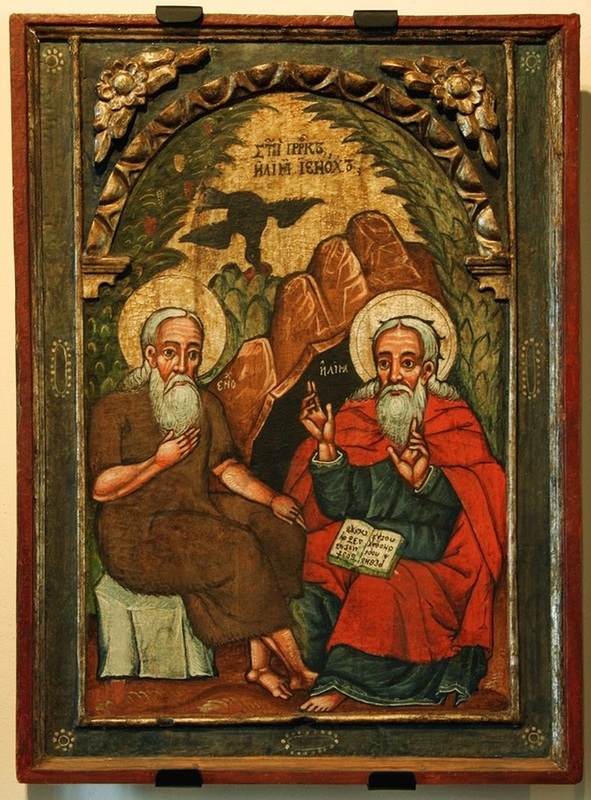
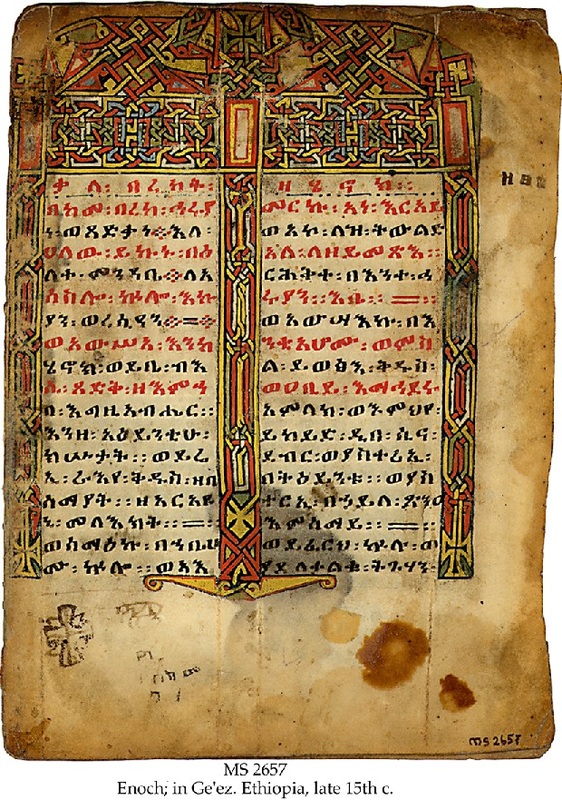

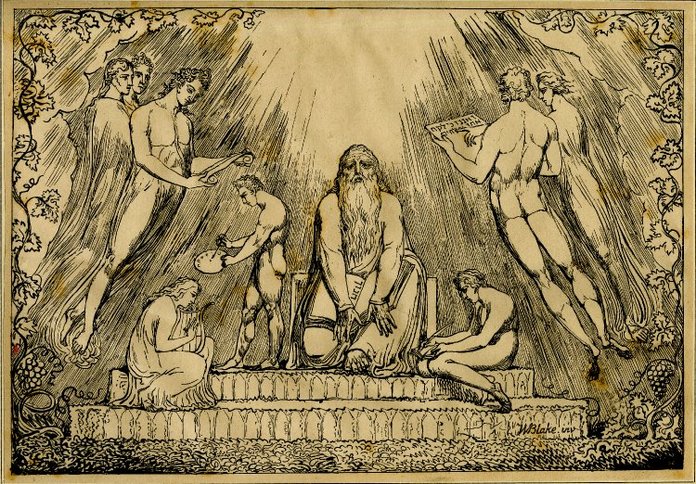
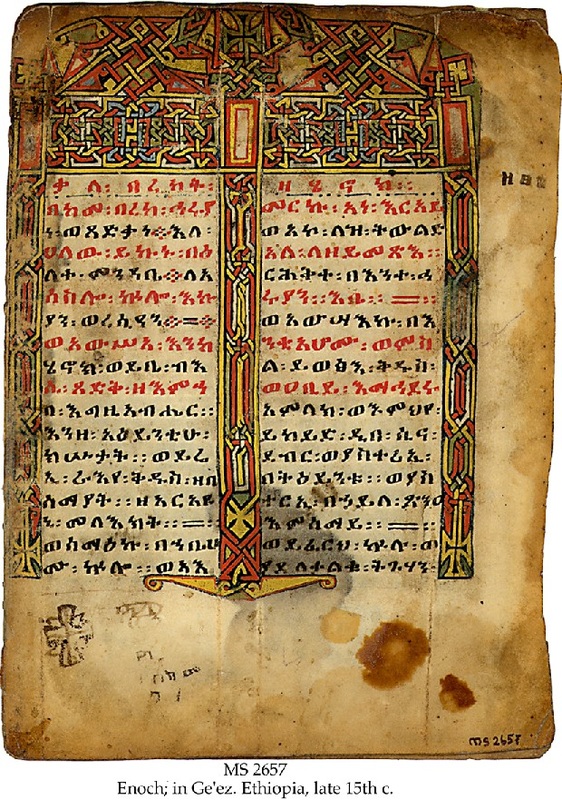
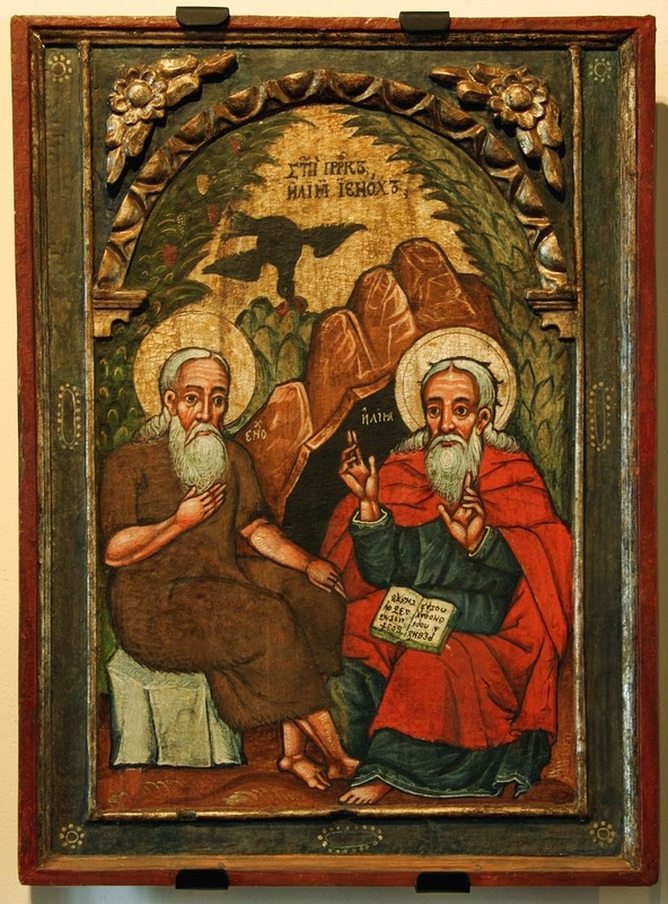









No comments:
Post a Comment